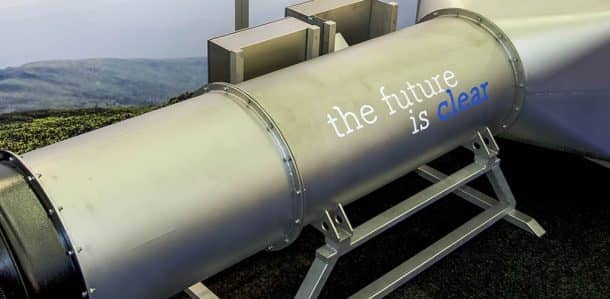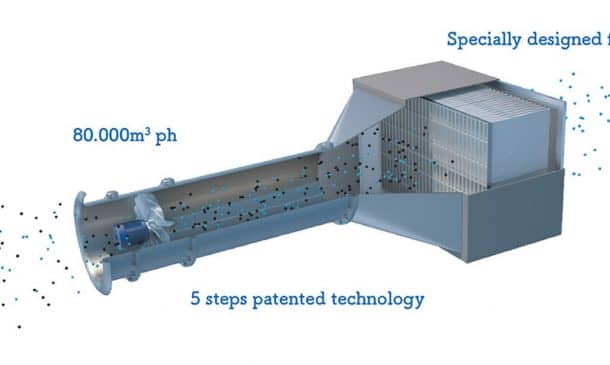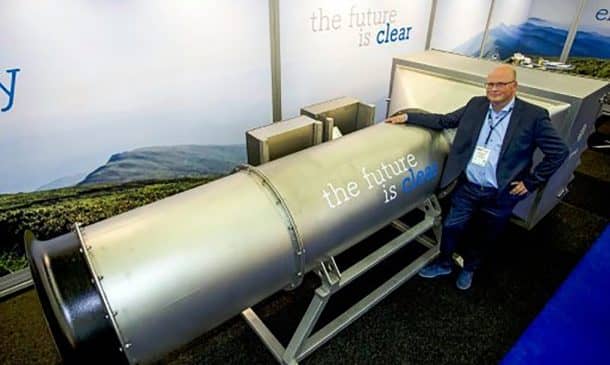Although industrialisation of the world has brought incredible economic and social overhauls, sadly it has also been detrimental and damaging to the environment with equal ferocity. And one of the gravest concerns in today’s world is the quality of air that we breathe in.

According to Conserve Energy Future (CFF), deaths caused by air pollution cost the European Union €161 billion, and over 90 percent of people living in EU are exposed to the particles at levels greater than recommended by the World Health Organization. About 65% of the deaths in Asia and 25% deaths in India occur due to air pollution. Ultra-fine particles are even more dangerous which are released by aeroplane and vehicle emissions, or during waste disposal. These particles damage the nervous system and even cause infections.

According to Dutch startup Envinity Group, the pollution rising from the burning of wood or fuel is the “greatest threat to public health.” To tackle this problem, Envinity Group has come up with an ingenious solution, which they call to be the world’s first huge outdoor air vacuum sucking up to these toxic particles from the air.
The design was revealed at the Offshore Energy 2016 Exhibition & Conference in Amsterdam. Henk Boersen, the company spokesman said, “It’s a large industrial filter about eight meters (yards) long, made of steel…placed basically on top of buildings and it works like a big vacuum cleaner. A large column of air will pass through the filter and come out clear.”
The company claims that their device is capable of filtering out 100 percent of fine particles and 95 percent of ultra-fine particles. The device is unique from other industrial pollution catchers as it can cover an area of over 300 meters radius or nearly 1,000 feet. The device can take in 800,000 cubic meters or 28,251,733 cubic feet of air in just one hour.

According to the company, this filtering system is the “first of its kind in the world”, which will allow the people to fend off the “silent killers” and has already seen great interest from airports, businesses, and governments.



So, it’s a kind of vacuum cleaner, after some time the filter will be full of particles, then what?
Will it be cleaned and recycled in something less harmful to the environment, will it be burned, buried???
Is there not a way to separate the C from the O in the CO and CO2 molecules, to produce solid carbon and have free oxygen (and not using plant-live)?
to patrick van den bigelaar
yes sir there exists the method on how to simply separate carbon from oxygen
i am working on it, i have been working on it for the last 4 years , yet i dont have the funding nor support nor technology to complete it and mass produce it.
but lets stay hopeful that my project PROJECT SPARTACUS will make appearance into the world and better the very air we breathe. i fail to see how people dont comprehend the importance of my work.
but then again i know that our world is far from perfect.
I give my word that i will not stop until my pollution de-materializer starts working towards a better world.
honor and glory
korab krasniqi
I have been working on such engine for a long time now
I knew somebody will eventually be more successful than me, and faster
i hate that my name won’t be written in the pages of history, yet i applaud the dutch team.
if only kosovo was more technology savvy,
Great to hear about your incentive Korab. If you think it is worthy of being covered by our magazine, drop by a message and will through it!
to mr umer sohail.
i believe that my project is worthy of not only being covered by your magazine.
i believe that PROJECT SPARTACUS is worthy of being covered by the world.
yet I live in kosovo, a small, lacking technology and funding country, to see it complete.
i dont have your email and wouldn’t want to put my secrets on the web for all to see.
after all I have been working on it for the past 4 years. and i want the glory to be mine.
I welcome your email where i can drop my knowledge into.
awaiting your reply
honor and glory
korab krasniqi